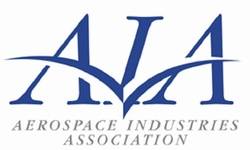Fri, Mar 18, 2011
Association Says Use Has 'Life Or Death' Consequences
 The volume of counterfeit parts in the supply chain is
increasing, necessitating that mitigation plans be developed and
implemented, according to a new report by AIA. "The use of
counterfeit parts in the aerospace industry may have life or death
consequences," said AIA President and CEO Marion C. Blakey.
"Reducing their proliferation and potentially harmful effects
requires increased diligence and active control measures from both
industry and government."
The volume of counterfeit parts in the supply chain is
increasing, necessitating that mitigation plans be developed and
implemented, according to a new report by AIA. "The use of
counterfeit parts in the aerospace industry may have life or death
consequences," said AIA President and CEO Marion C. Blakey.
"Reducing their proliferation and potentially harmful effects
requires increased diligence and active control measures from both
industry and government."
While the prevalence of counterfeit parts in the supply chain is
difficult to quantify, in fiscal 2009, the Customs and Border
Protection Service seized nearly $4 million in counterfeit critical
technology components, including networking equipment and
semiconductor devices that the aerospace industry uses. Counterfeit
Parts: Increasing Awareness and Developing Countermeasures, seeks
to raise awareness of the issues associated with counterfeit
parts.
"Regardless of how counterfeit parts enter the aerospace and
defense supply chain, the ramifications can be significant," said
Blakey. "They can jeopardize the performance, reliability and
safety of our products."
While profit is the primary incentive for counterfeiting, the
long lifecycle of aerospace products also contributes to conditions
that make aerospace and defense equipment susceptible to
counterfeiting. Aircraft developed in the 1950s, such as the B-52,
are still in active inventory while parts from original equipment,
component manufacturers or authorized aftermarket manufacturers or
distributors may no longer be available.

Marion Blakey
The report has more than 20 recommendations for industry and
government that encourage further discussion among stakeholders on
how to most effectively reduce counterfeit parts in the supply
chain. The recommendations were prepared by AIA's Counterfeit
Parts-Integrated Project Team and include:
- Scrutinize the purchasing process to limit the use of automated
systems, which increases the risk of counterfeit products.
- Develop an Approved Suppliers list for use by government and
industry.
- Conduct training for employees in the areas of procurement,
detection, reporting and disposition of counterfeit parts.
- Create standards in the area of mechanical parts and
materials.
"Our industry makes the best aerospace products available and
has an unsurpassed safety record," said Blakey. "We feel the
recommendations will allow industry and government to address the
issue before it threatens that record."
More News
From 2023 (YouTube Edition): An Even Faster Rolling Extra! Jim Campbell joined General Manager of Extra Aircraft Duncan Koerbel at AirVenture 2023 to talk about what’s up and>[...]
“Receiving our Permit to Fly and starting Phase 4 marks a defining moment for Vertical Aerospace. Our team has spent months verifying every core system under close regulatory>[...]
Middle Marker A marker beacon that defines a point along the glideslope of an ILS normally located at or near the point of decision height (ILS Category I). It is keyed to transmit>[...]
The Experienced Pilot Chose To Operate In Instrument Meteorological Conditions Without An Instrument Flight Rules Clearance Analysis: The airplane was operated on a personal cross->[...]
Also: ATI Strike Prep, Spirit Still Troubled, New CubCrafters Dealership, A-29 Super Tucano Samaritan’s Purse is officially moving its historic Douglas DC-8 cargo jet into re>[...]
 Classic Aero-TV: Extra Aircraft Announces the Extra 330SX
Classic Aero-TV: Extra Aircraft Announces the Extra 330SX Aero-News: Quote of the Day (11.15.25)
Aero-News: Quote of the Day (11.15.25) ANN's Daily Aero-Term (11.15.25): Middle Marker
ANN's Daily Aero-Term (11.15.25): Middle Marker NTSB Final Report: Lancair 320
NTSB Final Report: Lancair 320 Airborne 11.14.25: Last DC-8 Retires, Boeing Recovery, Teeny Trig TXP
Airborne 11.14.25: Last DC-8 Retires, Boeing Recovery, Teeny Trig TXP




